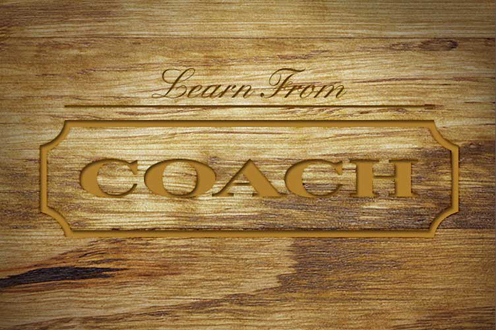Learn Luxury Marketing from Coach

One of the wonderful things about agency life is that you get to learn from so many smart clients. When it comes to luxury marketing, I’ve had the best seats in the house. Dom Perignon, Moet & Chandon, Mikimoto, Van Cleef & Arpels, The Plaza Hotel, Fairmont, Jumeirah, Starwood Preferred Guest, Paul Stuart, Lotus… Coach.
According to the CEO of the Luxury Institute, Milton Pedraza, “Luxury is defined by wealthy consumers as the best in design, quality, craftsmanship and service, all combined into an extraordinary experience that is truly relevant, both functionally and emotionally.”
Of those elements — design, quality, craftsmanship and service — is there one more important than the others?
In a word, yes.
I would offer that service — a fierce customer-centric ethic — is the essential value. Design, craftsmanship and the other elements of product quality are table stakes and too easily matched to be decisive over time.
A recent study of the unmatched brand success of Coach speaks to this eloquently:
Luxury Institute empirical data shows that Coach has achieved what no brand in the luxury handbag category has been able to in a five-year period with affluent women in the US: highest brand familiarity by a wide margin with an average of 73%. In addition, an impressive 25% of the sample of affluent consumers has purchased a Coach handbag in the last 12 months and 25% intend to purchase Coach as their next handbag. For comparison, the next highest rated brand has a purchase rate of 6% and purchase intent rate of 5% in the latest survey.
Coach is also the brand that most wealthy women have been willing to recommend to their friends and family for three out of five years and it has always been ranked within the top three most recommended brands with an overall average of 65%.
The brand is also top-of-mind when shoppers think of superior customer service. In a recent WealthSurvey, Coach was the handbag brand that was cited as having the best customer service on an unaided basis by premium handbag shoppers, outperforming its nearest two rival European competitors three to one. No other luxury handbag came close to achieving these results (see Graph A). Coach, to its global credit, demonstrates similar brand strength in Japan, one of the world’s most sophisticated luxury markets.
Achievements like these are the empirical rewards of a highly disciplined customer culture. Great product is extremely important and Coach is rated among the top quality handbags brands. However, a consumer-centric culture is the critical factor in consistently delivering extraordinary customer experiences.
By design, Coach is a consumer-centric brand built on strong core values. In an increasingly commoditized and highly competitive global luxury handbag market, it is simply not enough to outperform your competition on products; you have to dramatically out-behave them.
The kind of service that seduces prospects into repeat customers and generates word-of-mouth stories is what it takes to build a powerful luxury brand. Luxury customers come back for an experience that they love and can repeat. Understand what the luxury experience means to them and deliver at a legendary level.
Read the rest of the Luxury Institute’s report on Coach here.

